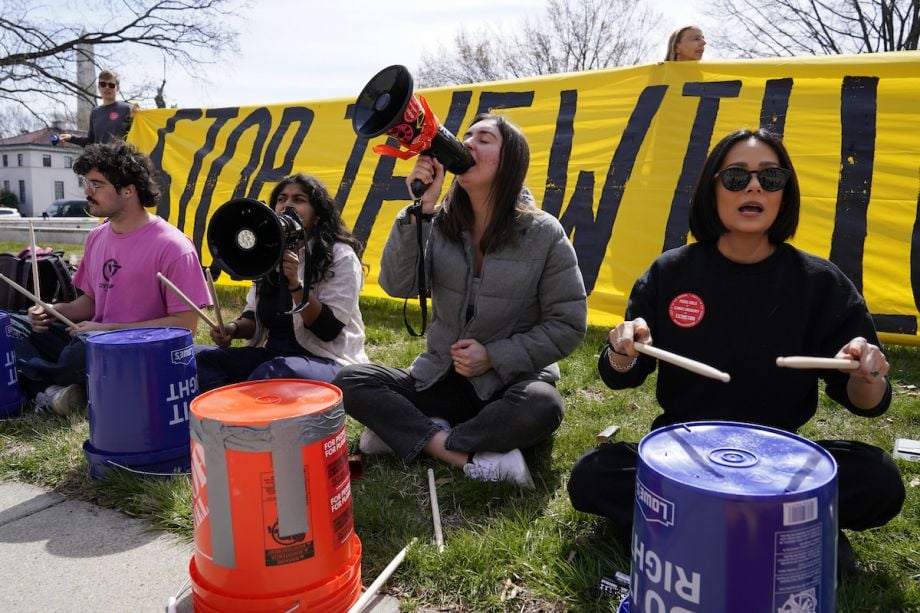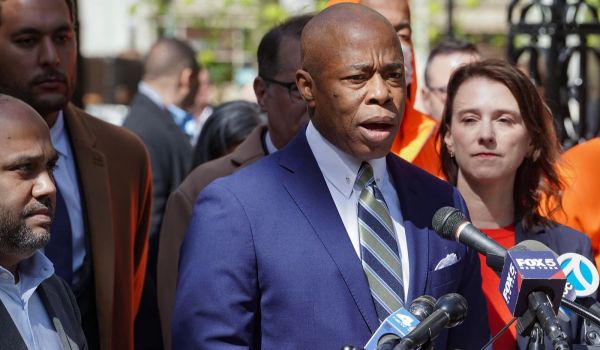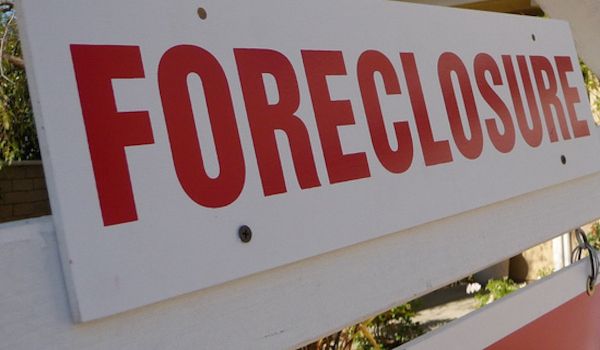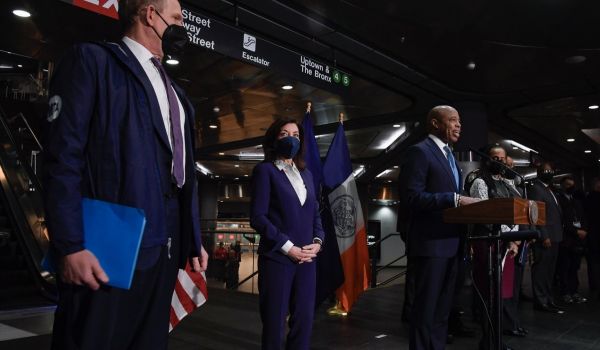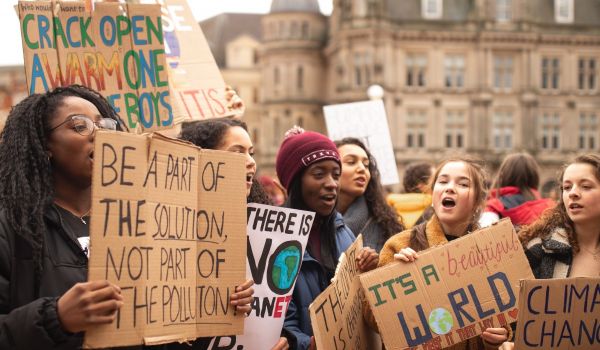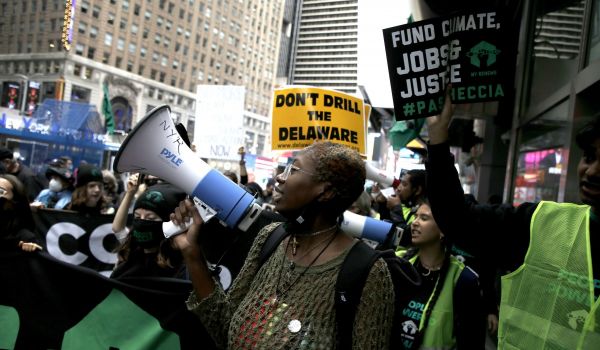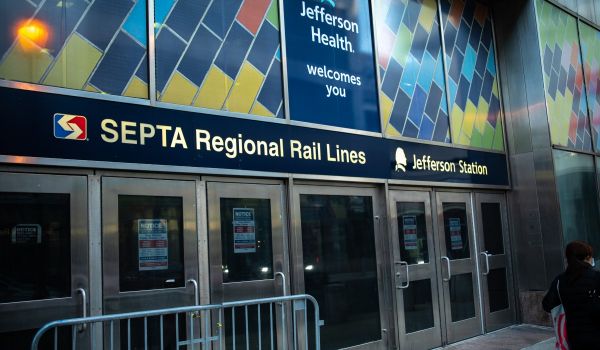IPCC Adds Fuel To Willow Protests
The Intergovernmental Panel on Climate Change released its latest report — its last before 2030 — warning that “the extent to which current and future generations will experience a hotter and different world depends on choices now and in the near-term,” and pointing to deadly global impacts of climate change already occurring.
The IPCC report was further fuel for activists opposed to an Alaskan oil-drilling project approved by the Biden administration. Protestors unfurled a banner on the lawn of the Department of the Interior in Washington D.C., calling on President Biden to stop the Willow project, according to Alaska Public Media. The protest happened during Biden’s planned talk at the White House Conservation in Action Summit, Common Dreams reports. Last week, Biden approved the project, which will allow the company ConocoPhillips to create 200 oil wells in Alaska’s oil reserves, risking environmental damage and prolonging the use of fossil fuels.
SEPTA Changes Bus Plans After Backlash And Cans $3 Billion Mall Train
In Philadelphia, public transportation users were furious when the city’s transit agency, SEPTA, planned to reduce bus routes from 125 to 99, as part of what it calls its “Bus Revolution” redesign. SEPTA has now made a round of changes based on resident input that will restore some direct lines, according to WHYY. The transit agency will conduct informal listening sessions followed by formal hearings before rolling out the changes in 2024.
Elsewhere in the city, an expensive and controversial planned rail line called the King of Prussia extension was yanked due to a lack of funding from the Federal Transit Administration, Billy Penn reports. The FTA was poised to pick up 60% of the cost of the $3 billion project. The train line would have carried just 9,768 daily riders to the King of Prussia Business District and was “championed almost exclusively by political and business leaders,” according to Billy Penn.
Gov. Newsom Says State Will Acquire 1,200 More Sheds For Unsheltered People
California Gov. Gavin Newsom plans to roll out 1,200 new so-called “tiny homes” across the state for people experiencing homelessness. Five hundred will go to Los Angeles, 350 to Sacramento and 200 to San Jose and 150 to San Diego County, according to the Santa Barbara News Press. The sheds will be acquired from Pallet, a public benefit corporation that supplies thousands of these structures to governments across the country.
While political leaders often refer to them as tiny homes, Pallet is careful to refer to them as sheds, and the units don’t meet the legal definition of a home by the standards of some states. (They don’t have bathrooms, for instance.) Activists and some unhoused people have been particularly critical of tiny homes in California, where some tiny home villages were run with stringent rules and curfews. Supporters say they’re useful short-term options while the state builds permanent housing.
Fed Raises Rates Amid Bank Failures
Despite the failure of Silicon Valley Bank and Signature Bank earlier this month and the shaky footing of First Republic, the Federal Reserve announced it would raise interest rates by a quarter of a percentage point.
The Fed kept interest rates at near-zero for a decade, fueling an era of unprofitable startups valued at billions of dollars. It began raising interest rates quickly over a year ago in an effort to address inflation, in part by throwing millions of people out of work to decrease demand for consumer goods. But hundreds of earnings calls suggest higher wages are not driving the increased cost of goods — rather corporate profiteering is doing that.
New York City Libraries Protest Cuts
Last week I wrote about impending library cuts in New York City’s budget. Librarians and advocates took to City Hall this week to protest the $42 million in budget cuts, Gothamist reports. The New York Public Library’s CEO told the City Council that the cuts would lead to reductions in staff, programming and entire branch closures, according to Gothamist.
Half of budget cuts are part of a program called “Program to Eliminate The Gap,” in which the Mayor’s office asks agencies to essentially do more with less by addressing “inefficiencies” and making cuts without staff and programming reductions. But that initiative can still lead to staff shortages when agencies have trouble hiring new people, and the city’s workforce is already understaffed.
This article is part of The Weekly Wrap, a newsletter rounding up stories that explain the problems oppressing people in cities and elevate the solutions bringing us closer to economic, environmental and social justice. Click here to subscribe to The Weekly Wrap newsletter.

Roshan Abraham is Next City's housing correspondent and a former Equitable Cities fellow. He is based in Queens. Follow him on Twitter at @roshantone.



